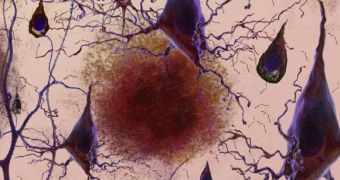By blocking an enzyme that indirectly hampers the formation of new memories, investigators at the Massachusetts Institute of Technology (MIT) were recently able to reverse Alzheimer's symptoms in animal models of the condition.
The work holds tremendous promise for applications in humans, since the genetic and molecular expression patterns between the two species are very similar. The team targeted an enzyme that is responsible for shutting down a gene involved in underlying the formation of new memories.
Normally, the enzyme does no harm, but it gets over-expressed in patients suffering from this neurodegenerative form of dementia. When enough quantities accumulate in the brain, this molecule shuts down the memory gene, inhibiting additional memory formation.
This also promotes the cognitive decline that characterizes Alzheimer's disease. When the MIT group used special chemicals to inhibit this particular enzyme in the brains of lab mice, they noted a significant improvement in memory formation and cognitive skills, almost immediately.
By addressing this enzyme, called HDAC2, scientists hope to translate the same achievement in humans as well. The condition affects 5.4 million people in the United States alone, and its incidence will continue to rise as the general population ages.
Official statistics indicate that the number of seniors suffering from Alzheimer's will double every two decades. The developed world will be the most severely affected, since this is where the population is decreasing due to negative rates of natural increase (RNI).
“I would really strongly advocate for an active program to develop agents that can contain HDAC2 activity. The disease is so devastating and affects so many people, so I would encourage more people to think about this,” says Li-Huei Tsai, the leader of the new study.
The expert, who holds an appointment as the director of the MIT Picower Institute for Learning and Memory, says that it will take at least 10 years to develop and test an Alzheimer's therapy based on HDAC2 inhibitors.
Details of the new research appear in the February 29 online issue of the top scientific journal Nature.

 14 DAY TRIAL //
14 DAY TRIAL //